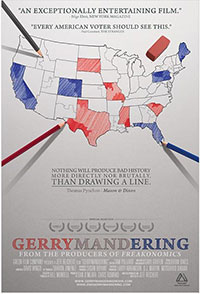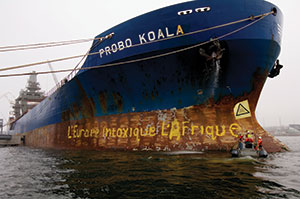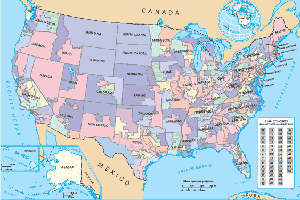
Gerrymandering
GREEN FILM COMPANY. 77 minutes.
Though gerrymandering is nearly as old as the Republic—its namesake was early 19th century Massachusetts governor Elbridge Gerry (pronounced “Gary,” if you please)—it’s never really been a hot-button issue for voters. Gerrymandering seeks to change that with an entertaining yet outraged look at the odd practice of letting politicians pick their voters. Just consider the case of Barack Obama, who got a major career boost when he helped redraw the boundaries of his mostly black Illinois state Senate district so it represented white liberals.
A bipartisan cast of talking heads, including California Gov. Arnold Schwarzenegger and Howard Dean, make the case for reform. But Gerrymandering walks the boundary between documentary and political ad: Just as I received a review DVD at work, I also received a copy at home—mailed to me and other Golden State voters by the backers of a redistricting reform proposition.—Dave Gilson

The Stinking Ship
26 minutes.
One night in August 2006, a tanker chartered by Trafigura, a British oil trader, anchored off the Ivory Coast and illegally unloaded 500 tons of toxic waste into Abidjan’s landfills. The pungent, blistering sludge killed 16 and hospitalized more than 100,000. Director Bagassi Koura’s short documentary skillfully chronicles how Trafigura dodged environmental regulations to save a mere $300,000, only to spend millions trying to cover up its responsibility.
What makes The Stinking Ship so heartbreaking are the stories of the people still living with the effects of the “Ivorian Chernobyl,” which has yet to be fully cleaned up. A community leader laments, “When it rains or it’s windy, frankly we can’t live in the village. The stench reaches far beyond it. We are walking dead.” —Titania Kumeh
















